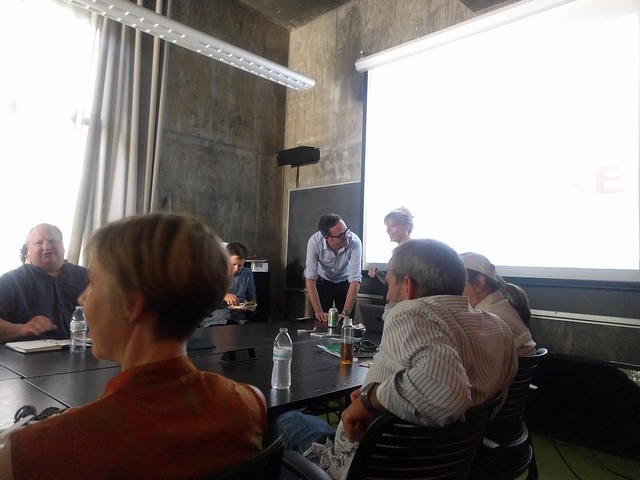Revisited: TF Tierney, Intelligent Infrastructure

TF Tierney discussed her new book, "Intelligent Infrastructure," which includes a series of essays from leading scholars on architecture and design.
Since data has always underlined the organization of urban frameworks, Tierney discussed how the incredible plethora of new data to which companies and governments now have access provides new opportunities for urban design. Moreover, the new technologies now available on our phone offer further possibilities for building transit options. Tierney presented how some cities are now building networks that include leasing options for cars, bicycles etc., reducing the need for ownership. In so doing, streets are able to be reclaimed and repurposed for other uses.
Once concern around this multi-modal governmental push that Tierney raised is access. Cities such as Paris, she noted, have combatted this by providing free internet access citywide and placing many of these leasing options in low-income neighborhoods. Other cities have also focused on interoperabilty so that users can select routes based on modes, cost, and time. Still others have added transit cards that work on all modes of transit and also work as a debit card in stores.
However, many of these initiatives are launched through public/private partnerships. As these businesses increasingly monitor individuals, Tierney argues for the need to involve citizens further in the decision making processes particularly with regard to their smart-city choices. She pointed to multiple interventions that artists, engineers, and urban designers have built to promote these conversations.
In efforts to combat climate change and reduce inefficiencies, cities are also building large sensor networks. This surveillance, even with only meta-data, impacts how public life can function. One might ask whether the Paris riots of 1968 would have been possible with such a monitoring network.
Ultimately, Tierney argues that social policy, climate policy, and mobility are interrelated, and changing one aspect impacts the entire ecology.

